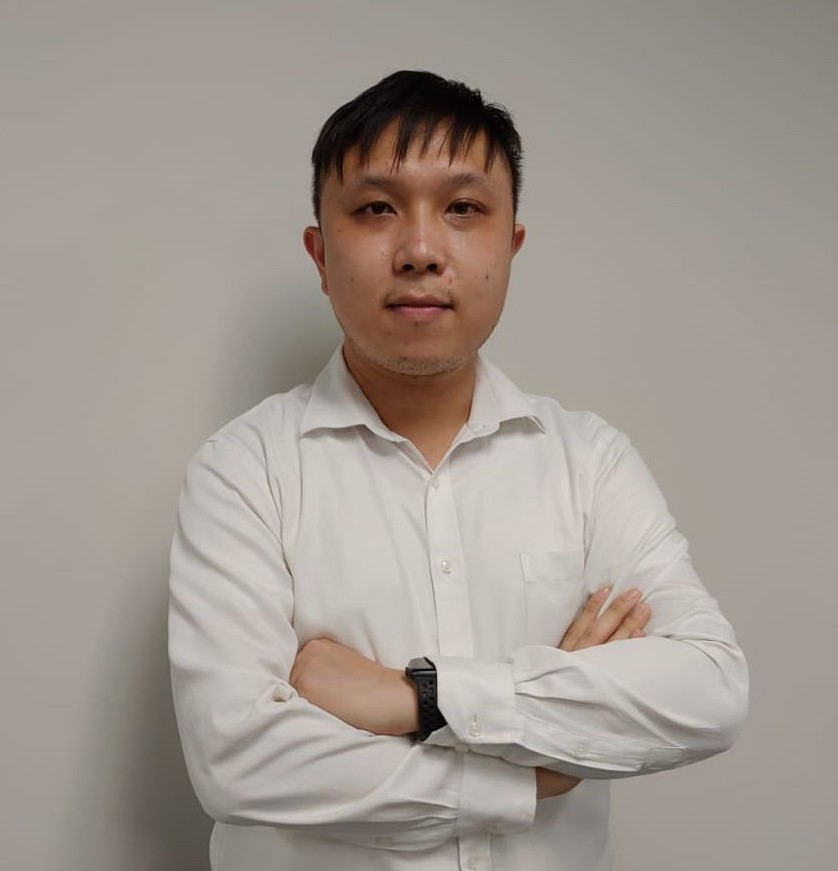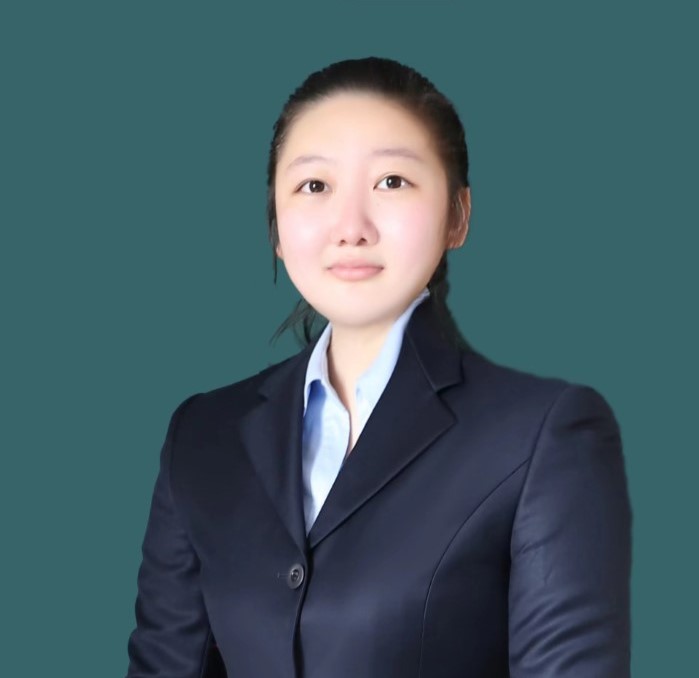A sharing corner for you
Community Voices is a corner where readers can share their thoughts with other members of the FLASS community. We welcome submissions on education-related topics, inspirational life experiences, heartwarming stories that took place at EdUHK, and whatever else you believe would be a meaningful contribution.
In this issue of FLASS FORWARD, several graduates from the Department of Mathematics and Information Technology (MIT) share with us the unforgettable moments they experienced during their studies at FLASS, and the lasting impact education at EdUHK has left on them.
Ms Chung Po-loi, Mr Ken Kwan Man-lung, Mr Choi Shu-kin
After graduating from Grantham College of Education, I went back to take a few further studies in education at HKIEd and then EdUHK. It could be said that my pedagogy and belief in education was shaped by this University.
When I studied at Grantham College, I didn’t know what education was, believing it was simply about supervising your students to finish their homework. At the college, I learnt from my professors that as a teacher, I need to design a syllabus and prepare teaching materials for my students. I was inspired to believe that education is actually about igniting the motivation to learn in your students.
I remember a professor asked us how we would explain the formula for calculating the size of a quadrilateral. At that time, for me, it was simply a question of memorisation. However, the professor taught us that instead of asking our students to learn a formula by rote learning, teachers should explain how the formula is developed step by step.
Indeed, in my time, many kids learnt mathematics by rote memorisation. I thought about my neighbour, a little girl who finished her mathematics homework every day mechanically, without understanding the logic behind each calculation. I asked myself, how can I acquire the ability to elevate her thinking in mathematics? It might have been because of that little girl that I chose mathematics when I decided to become a teacher.
Mathematics education in primary schools has seen landmark changes in the last decade or so. The flipped classroom approach and e-learning tools have become widely used in teaching, transforming the role of a teacher from an instructor to a facilitator of learning. The availability of an e-learning platform enables teachers to use educational tools like video-sharing and mind maps more readily to help students to solve problems. Through these e-learning tools, teachers can also more accurately track their students’ learning progress.
Mathematical thinking is actually very useful in my present work. Mathematics is a subject about solving a problem by breaking it down into small bits. It is also about finding the patterns behind a phenomenon. After taking up a leadership position at my school for years, I found that the same way of thinking could be applied to school management.
I am thankful to my professors at Grantham College of Education, HKIEd and EdUHK for enlightening me. They helped me to understand that to receive an education in mathematics is to train one’s mindset, and how important it is to teach students to learn new things through understanding and not by rote learning. In recent years, as I have taken up some public responsibilities in curriculum development, I am learning more about how a curriculum’s design can affect teaching and learning. Education is not merely about correcting homework and delivering classes; it is about how to enlighten a student through appropriate examination paper design and learning progress evaluation, among others. These are my greatest takeaways from my alma mater, which were consolidated by my own teaching experience.

In 1999, when I was a primary school student, I joined many activities in information and communication technology at my school. Since then, I began to develop an interest in IT. Upon graduation from secondary school, I chose the BEd in information and communication technology programme at EdUHK and became a graduate of the first cohort of the programme.
I started to teach myself how to write programming in secondary school, but it was when I took Introduction to Programming in my first year at EdUHK that I formally learnt how to write and present programme code. I remember one of my programming assignments was perfect in terms of the code itself, but three marks were deducted for not formatting them correctly. I have never forgetten to format my code accordingly after losing those three marks.
Another thing I found memorable at EdUHK was working with other classmates to complete group projects. One of the IT projects was particularly demanding. We worked for three days and three nights on campus to finish that project.
In my final-year dissertation, I invented an application to improve the attention span of SEN students. Through this project, I gained some knowledge about teaching SEN students. Because of my experiences in SEN education, I have been given opportunities to take up teaching tasks related to SEN students.
I taught mathematics, IT and general studies at a primary school for one year after graduating from EdUHK in 2016. After I accumulated many teaching experiences at that primary school, I found a new job at a different school, where I have been working for the last five years.
Every student at my present school has an iPad. The invention of electronic gadgets like the iPad has put a world of information right at our fingertips. That means education has entered an age where rote learning is no longer important. However, creativity and problem-solving skills – which cannot be learnt through memorisation – are still irreplaceable. If you know how to write programme code, you can alter the code according to your real needs to reduce your workload. Being able to do so indicates greater problem-solving ability.
After six years of being a teacher, I believe the most critical thing for effective teaching is to understand your students. That is to say, it is essential to know what your students want to learn, so you can design lessons they find interesting. Apart from cultivating an interest to learn in your students, it is also instrumental to give them a sense of achievement. I think these are the things I have learnt at EdUHK, and confirmed throughout my career as a teacher.

I graduated from the Bachelor of Education (Honors) (Secondary) in Mathematics programme in 2020. The programme helped me acquire the fundamentals and advanced knowledge required for teaching. It included sessions where students could apply theories learnt from classes to teaching in practice, polishing their teaching skills and gaining experience.
Education Studies (ES) courses provided by the University are also crucial for teaching. Following graduation, I have been teaching high school mathematics. I find that some of the most difficult challenges in teaching include handling classroom management and students’ behavioural issues. As a teacher, we do not only focus on teaching subject knowledge, but also strive to assist in the personal development of students. We aim to help students acquire problem-solving skills and social skills, and encourage them to participate in extra-curriculum activities. We help students to become better people, and to be prepared for entering society. The ES courses at EdUHK taught me the foundational knowledge and theories about how to help my students.

Postgraduate Diploma in Education (Primary) - Mathematics, Class of 2019
APSM teacher, HHCKLA Buddhist Wisdom Primary School
I found the one-year PGDE course I took very fruitful. In addition to teaching me the necessary qualities of being a teacher, it provided many internship opportunities to practise my teaching skills. The Department of Mathematics and Information Technology (MIT) maintains a good relationship with many schools, allowing them to arrange internship opportunities. During my internship, the instructor from MIT gave me a wealth of valuable advice regarding my teaching skills. Through their guidance I was able to make noticeable progress. In addition, the department provided various kinds of support for graduates, such as classes in resume writing, interview skills and mock interviews, which were really helpful while job hunting. The pedagogy and educational psychology lessons that I took at the PGDE programme are very relevant to my current work. These subjects taught me how to help my students to develop knowledge and build character.

Mathematics teacher, Tiancheng Middle School Affiliated with Guangzhou Tieyi Middle School
Studying at EdUHK has benefitted me greatly. The words and deeds of my EdUHK teachers helped me understand the true meaning behind the motto, “Great learning makes a teacher; moral integrity makes a model”. I have also adopted this motto for my present work and future pursuits. The most precious experience I gained from the PGDE programme was through practical teaching opportunities. I taught at a local secondary school as an intern teacher for two classes. I was able to apply theoretical knowledge to actual classroom teaching, which served to bridge my identity from a student to a teacher.
Due to the COVID-19 pandemic, we have shifted from face-to-face learning to online teaching. Though it has presented a real challenge to us, it has also given us the opportunity to learn how to use online tools to teach. In the end, we learnt how to use our professional knowledge to conduct online teaching effectively, which will surely be an important skill for future work. I cherished my learning at EdUHK very much; I believe what I have learnt will serve me for a lifetime.
If you have anything you would like to contribute—whether it is a book or film review, a photo or even a poem—you are most welcome to share it with us. Please send your ideas to the executive editor of the newsletter: Mr Tam Siu-man at flassnews@eduhk.hk.


